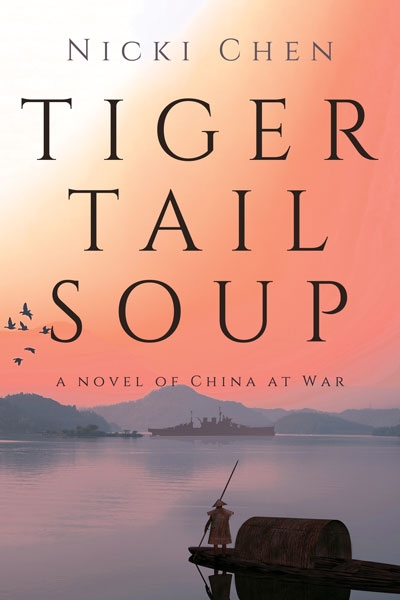Pearl Harbor Wasn’t the Only Target
If you’re a history buff, you probably know how expansive the Imperial Japanese Navy war plans were for December 7, 1941. Besides attacking Pearl Harbor in Hawaii, they planned and carried out simultaneous strikes and movements against several other targets, attacking the Philippines, Wake Island, Guam, Midway, Malaya, Thailand, Hong Kong, Java, Sumatra and Shanghai.
There was at least one other place they invaded on that day. But let me keep you guessing for a while.
Two Families Half a World Apart
Less than two months after the attack on Pearl Harbor, my parents were married in Mount Vernon, WA. In keeping with wartime frugality, it was a simple civil ceremony. Soon thereafter my dad, who was actually a Canadian citizen at the time, joined the United States Army and was sent to Fort McClellan in Alabama for basic training. When he completed training, he was shipped out to fight in North Africa and then in Italy and France.
They made him an engineer, which meant he was sent out beyond the front lines to build bridges and such.
Another job: looking for mines by stabbing the ground with a knife. One day his best friend made contact with a mine and was blown to bits. My dad ended up in the hospital. Losing his friend was so painful that he avoided having a best friend again as long as the war continued.
My mom was pregnant with me when my dad went to war. She sent him pictures of me surrounded by hearts and doilies. My dad, who was generally quiet and low-key, wrote mushy letters back to her. (She saved them all.) My favorite quote from him: “I love my wife, baby, rifle & foxhole.” When he returned from the war, I was already three years old.
On the other side of the world my future husband’s family was affected more directly by the attack on Pearl Harbor. They lived on the small Chinese island of Kulangsu (now known as Gulangyu). The area surrounding them had been occupied by the Japanese since 1938. But Kulangsu, which was an International Settlement or Treaty Port, had been spared. Then at 4 a.m. on December 8th 1941 (December 7 on the other side of the International Date Line), the Japanese Marines crossed over from Amoy, and for the next three and a half years, the 70 American, British and Dutch citizens and the nearly 80,000 Chinese on the island lived under Japanese occupation.
While my mother-in-law and her children struggled to survive the occupation, my father-in-law fought the Japanese. He was an engineer too, but unlike my dad who was self-taught, my father-in-law had a degree in engineering. He was an officer who fought the Japanese for seven long years. In 1949 he helped arrange for some of the last boats to ferry Nationalists and their families to Taiwan. By the end of the evacuation, they were lashing small boats together like rafts to cross the Taiwan Strait.
A Few Statistics
After Pearl Harbor the United States declared war on two fronts. By 1945, 418,500 Americans were dead. More than three hundred thousand of them died in Europe; 106,000 in the Pacific Theater.
China, which had been fighting on its own soil since 1937, lost three to four million soldiers and around sixteen million civilians.
Thankfully, my future father-in-law and my own dad were among those soldiers who survived. But as the numbers above show, it was particularly dangerous to be a Chinese civilian during the war. Without adequate food, fuel, clean water and medicine, many people starved or fell ill, my husband’s baby brother among them.
If you’re like most people in the world, you have some connection to Pearl Harbor. Do you have a story to share?
If you’d like to keep up with my weekly posts, you can receive an email reminder by clicking on the subscribe button at the top of the page.
Next week’s post: Skirts and Pants





Your post reminded me of this quote: “The true soldier fights not because he hates what is in front of him, but because he loves what is behind him.” G.K. Chesterton
There is so much history in a family – it is wonderful to hear your stories.
Thank you, Rebecca, for the G.K Chesterton quote. It’s perfect.
Nicki, you have such a gift for blending the stories that surround events and multiple families drawing contrasts, similarities with survival. Other than a former boyfriend who was six years old and living in Navy housing at Pearl Harbor, I have no story to add — and only a note of congratulations on the success of your history-rich blog.
Thank you, Emily. I appreciate your kind words.
Though I am not connected at all to Pearl Harbor, I am very connected to the events during WW2 in Europe.
My grandfather on my fathers side died early on during the Russian Campaign and left his wife with three children in east Germany. As the war approached its end and the Soviet Army invaded German territory, my father and the rest of his family had to flee into western Germany. They ended up what would be later my hometown.
The story of my mothers parents is on a whole different level. The short story is that both of her parents were from an Finnish speaking area south of St. Petersburg. Due to growing discrimination towards Finnish speakers in the Soviet area and finaly due to the war, those people had to escape the mayhem of the gulags and other unpleasant things. My mom’s mother lost her husband and one of her two sons during that struggle of escaping and fleeing the country towards safety in Finland, my mom’s father lost his wife and his three children. They both met in Finland, started a new family and their first born daughter went to Germany to work there in the 1960`s, in the same town my father’s family had fled to. However, even though they leaved nearly door to door for many years, it took nearly another 20years for them to meet and eventually get married.
So it can be said that I only exist due to the events of that cruel war.
My wife has no idea what her grandparents went through during that time in China, as no one ever speaks of it in the family.
So many people, soldiers and civilians, suffered and died during WWII, and we know so few of their stories. Thank you for telling us about your family. The terrible suffering of your mother’s parents is hard to comprehend. Whether the family members they lost while fleeing to safety in Finland were shot or died from starvation, disease, or exposure, they were all casualties of that terrible war.
Enjoyed reading your family history Nicki! I can see your strong resemblance to your Dad. He sounds like an amazing guy!
Thank you, Maureen. I used to be told I looked like my mom. Maybe now I’m reaching the age where I resemble my dad.
Quite a story, Nicki, and since I am 10 years older than you I remember these events very well. My dad, too, served in the U.S. army and served in the China,Burma,India theatre in the OSS which was the forerunner of the CIA.
I, too, have stories to tell but you’ve actually put them to paper, and done a good job of it, too.
Ginny Riedinger
I wonder, Ginny, if your dad told stories about that time. He must have had many. My dad never talked about the war, but I think that was pretty typical of his generation. Everything I know came through my mom.